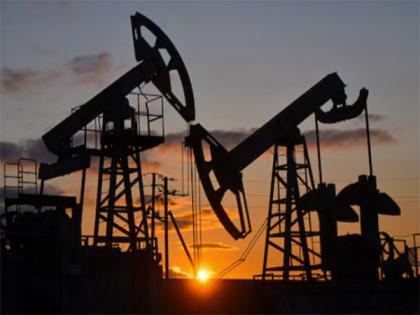Indian Oil refiners continue to source oil from Russia
By ANI | Updated: August 2, 2025 09:59 IST2025-08-02T09:52:37+5:302025-08-02T09:59:40+5:30
Washington DC [US], August 2 : Indian oil refiners continue to source oil from Russian suppliers, sources told ANI. ...

Indian Oil refiners continue to source oil from Russia
Washington DC [US], August 2 : Indian oil refiners continue to source oil from Russian suppliers, sources told ANI.
Their supply decisions are guided by price, grade of crude, inventories, logistics and other economic factors, the sources revealed.
Providing context for India's decision to continue sourcing oil from Russian suppliers, sources said that Russia, the world's second-largest crude oil producer with an output of around 9.5 mb/d (nearly 10% of global demand), is also the second-largest exporter, shipping about 4.5 mb/d of crude and 2.3 mb/d of refined products. Fears of Russian oil being pushed out of the market and the consequent dislocation of traditional trade flows drove dated Brent crude prices to soar to US $137 per barrel in March 2022.
"In this challenging environment, India, as the world's third-largest energy consumer with 85% crude oil import dependence, strategically adapted its sourcing to secure affordable energy while fully adhering to international norms," added sources.
Earlier, United States President Donald Trump on Friday (local time) claimed that India may cease purchasing Russian oil, calling it "a good step" if confirmed, while India has defended its sovereign right to conduct energy policy based on national interest.
Earlier on July 31st, Reuters reported, citing its sources, that Indian state-owned refineries suspended Russian oil purchases last week amid threats of tariffs from US President Donald Trump and narrowing price discounts.
Providing further historical context to its decision of sourcing Russian Oil, sources toldthat Russian oil has never been sanctioned ; instead, it was subjected to a G7/EU price-cap mechanism designed to limit revenue while ensuring global supplies continued to flow. India acted as a responsible global energy actor, ensuring markets remain liquid and prices stable. India's purchases have remained fully legitimate and within the framework of international norms.
"Had India not absorbed discounted Russian crude combined with OPEC+ production cuts of 5.86 mb/d, global oil prices could have surged well beyond the March 2022 peak of US$137/bbl, intensifying inflationary pressures worldwide," added sources to ANI.
It is also pertinent to note that Russian oil has never been sanctioned and it is still not sanctioned by either US or EU. Indian OMCs have not been buying Iranian or Venezuelan crude which is actually sanctioned by US. OMCs have always complied with the price cap of $60 for Russian oil recommended by the US. Recently EU has recommended a price cap of $47.6 dollars for Russian crude which will be enforced from September.
Commenting on European Union's import of Russian origin liquified natural gas (LNG) during this period, sources added, "EU was the largest importer of Russian liquefied natural gas (LNG) during this period, buying 51% of Russia's LNG exports, followed by China at 21% and Japan at 18%. Similarly, for pipeline gas, the EU remained the top buyer with a 37% share, followed by China (30%) and Turkey (27%)."
Sources speaking torebutted media reports of India halting purchase of Russian Oil and after US President's latest comment echoing the claim in the media report.
US President Trump made remarks while answering anquestion, on whether he had a number in mind for the penalties on India and if he was going to speak with Prime Minister Narendra Modi., "I understand that India is no longer going to be buying oil from Russia. That's what I heard, I don't know if that's right or not. That is a good step. We will see what happens..."
Backing their decision to continue sourcing Russian Oil, Sources added that India's energy decisions have been guided by national interest but have also contributed positively to global energy stability. India's pragmatic approach kept oil flowing, prices stable, and markets balanced, while fully respecting international frameworks.
Disclaimer: This post has been auto-published from an agency feed without any modifications to the text and has not been reviewed by an editor
Open in app